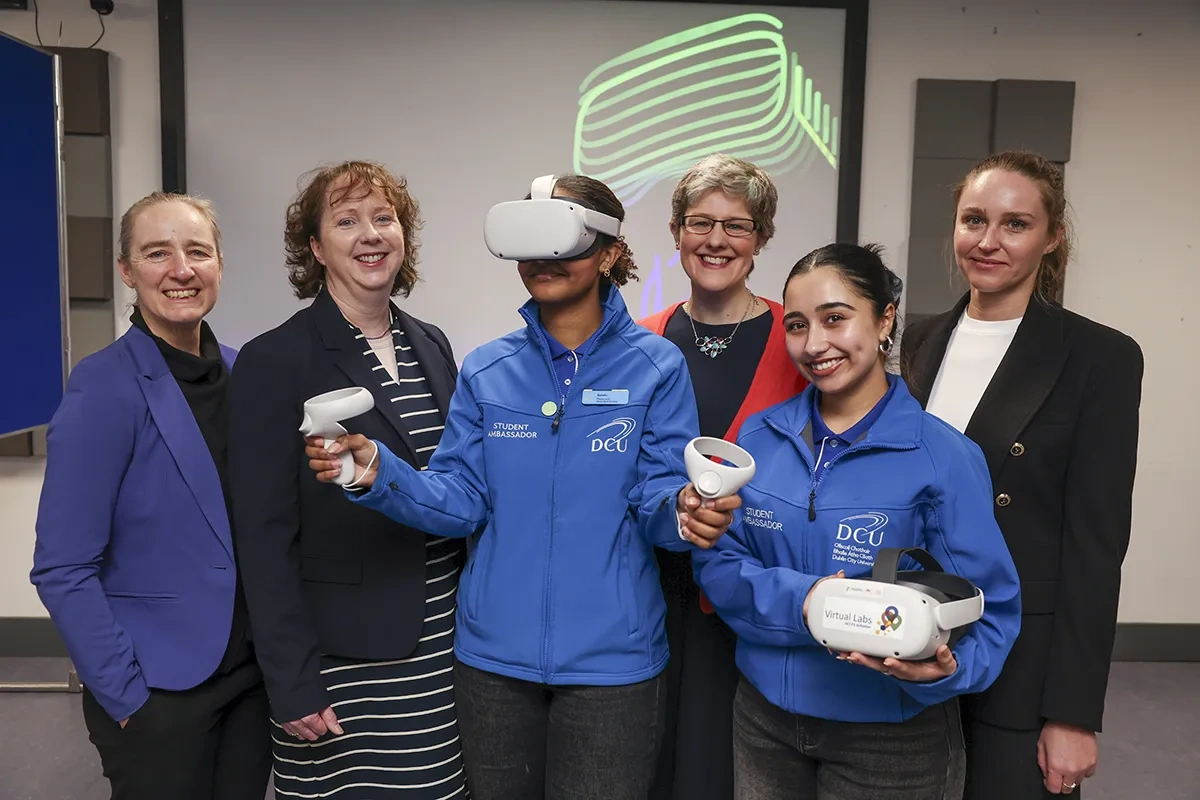

Dublin City University hosts inaugural symposium on virtual and immersive learning
Dublin City University (DCU) hosted its inaugural Virtual Immersive Blended Education Symposium (VIBES) today, Friday 10 January 2025. The one-day event brought together academic experts, researchers, students, industry leaders and policymakers to explore the evolving role of immersive learning and its potential impact on education and training.
The event highlighted innovative applications of virtual and immersive technologies in education, focusing on enhancing learning experiences and improving student outcomes. Attendees engaged with cutting-edge case studies and academic research, from DCU staff and students on the implementation and impact of immersive learning.
The symposium featured a series of focused sessions covering a range of topics, including virtual laboratories, virtual reality in business and language learning, and the role of immersive technology in engineering and education. Each academic session was paired with perspectives from students who have directly engaged with these technologies, providing a rich, multifaceted view of their impact.
The international keynote address was given by Assistant Professor Dorota Kamińska from Łódź University of Technology, Poland, who discussed the global implications of immersive learning technologies in higher education.
In the opening session, Dr Aoife Morrin, Chair of the DCU Virtual Labs Working Group, presented on her groundbreaking work in virtual laboratories. This initiative allows science students to perform experiments in a fully interactive virtual environment that closely mirrors DCU's physical labs, providing greater flexibility and access to hands-on learning experiences.
